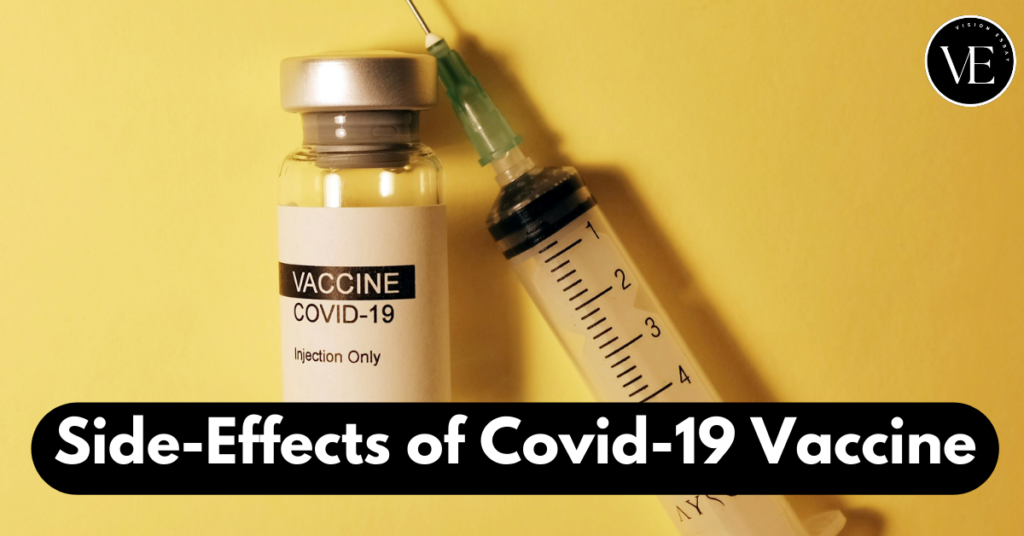
Introduction
Controversy about the adverse effects of Oxford-AstraZeneca’s Covid-19 Vaccine has been high recently. Serum Institute of India (SII) sells it under the “Covishield” brand in India. It is associated with Thrombosis with Thrombocytopenia Syndrome (TTS), an uncommon adverse effect.
What is the Covishield Vaccine?
- The Oxford-AstraZeneca Covid-19 vaccine version manufactured by the Serum Institute of India (SII) is referred to as Covishield. Though produced by SII under license, it is virtually the same vaccination as the Oxford-AstraZeneca vaccine (also known as AZD1222 or ChAdOx1 nCoV-19).
- Covishield is a vaccine that uses a viral vector, just as the original Oxford-AstraZeneca vaccine. It transfers genetic material that codes for the spike protein present on the surface of the SARS-CoV-2 virus using an innocuous adenovirus—a kind of virus that usually causes the common cold in chimpanzees. When a person is exposed to the virus again in the future, this spike protein helps to teach their immune system to identify and combat it by inducing an immunological response in the body.
- Many nations have approved the Covishield vaccine for use in emergencies, and it has played a vital role in the global campaign to vaccinate against COVID-19. It has shown success in halting the virus’s ability to cause serious sickness, hospital stays, and even death. Like any vaccinations, it may have some minor adverse effects, but these are often transient and moderate and include injection site discomfort, fever, lethargy, headaches, and muscular soreness in certain people.
What is Thrombocytopenia Syndrome?
- Thrombocytopenia syndrome, often referred to as thrombocytopenia with hemorrhagic fever syndrome, is an uncommon but dangerous illness marked by low platelet counts (thrombocytopenia) coupled with fever, bleeding, and frequently multiple organ failure.
- Using adenoviral vectors, this uncommon condition has been reported in recipients of the Covid-19 vaccination.
- The prevailing belief is that the adenovirus vector utilized in these vaccinations triggers an immunological response, which is what causes it.
- Non-enveloped, double-stranded DNA viruses known as adenoviruses are thought to be superior vectors for introducing target antigens into mammalian hosts due to their capacity to elicit both innate and adaptive immune responses.
What are the Symptoms of Thrombocytopenia Syndrome?
- Fever: Patients usually have a high fever, frequently reaching temperatures above 38.5°C (101.3°F).
- Thrombocytopenia: This is the syndrome’s defining characteristic- a low platelet count. Bleeding tendencies might result from a drop in platelet count since platelets are essential for blood clotting.
- Bleeding: Patients may develop petechiae, which are little red or purple patches on the skin, ecchymosis, which is bruises, mucosal bleeding (such as gum bleeding or nosebleeds), or more serious hemorrhagic episodes as a result of thrombocytopenia.
- Gastrointestinal Symptoms: They might consist of diarrhea, vomiting, nausea, and abdominal discomfort.
- Fatigue and Weakness: Patients frequently complain of overall weakness and exhaustion.
- Multi-organ Dysfunction: Liver and renal damage are among the organ dysfunctions that can result from severe cases of thrombocytopenia syndrome.
What are the Risks of Covid-19 Vaccine?
- Many symptoms, including headaches, numbness in body parts, tiny red patches or bruises beyond the injection site, discomfort in the chest or limbs, and trouble breathing, are associated with TTS.
- Blood clots are referred to as thrombosis, and low platelet counts are indicative of thrombocytopenia.
What are the Benefits of Covid-19 Vaccine?
- Even during the Delta wave, Covishield has demonstrated in many tests to provide over 90% protection against mortality and over 80% protection against severe COVID-19.
- The vaccination significantly reduces mortality for a 0.1% probability of death and a 50% chance of contracting Covid-19, vastly outweighing the dangers.
- It has lessened the chance of long-term impairments, early heart attacks, and strokes, as well as the severity of the disease, acute pain, and strain on the healthcare systems.
- This risk was identified early in the pandemic, before the development of vaccinations, and vaccination has been demonstrated to lower this risk.
Also read: Ayurveda in the Prevention of Healthcare
What were the Regulations and Concerns Related to Covid-19 Vaccination in India?
- Regulations Related to Covid-19 Vaccines in India
- India has immunized around 80% of its population, using almost 1.75 billion doses.
- Phase 3 studies for the Covid-19 vaccination were not completed before they were given out, and the makers were not fully informed about any potential short- or long-term adverse effects or deaths.
- For example, Bharat Biotech’s Covaxin Phase 3 protocol was authorized prior to Phase 2 completion, and the Phase 2 trial results was not taken into account when selecting the vaccine candidate.
- The Drug Controller General of India (DCGI) has approved the emergency use of the Corbevax vaccine (by Biological E) for children aged 12 to 14 years.
- Concerns Related to Covid-19 Vaccines
- Due to documented incidences of blood clotting, many European nations temporarily suspended the use of AstraZeneca’s vaccine in March 2021.
- The World Health Organization indicated that occasional occurrences of TTS were occurring following Covishield and Vaxzevria vaccines, but they emphasized that, based on the evidence that is currently available, the risk seemed to be very low.
- The use of Covieshield was discontinued in Europe, the UK, the USA, and Australia as a result of TTS reports, even though the advantages outweighed the disadvantages.
- There were adequate mRNA vaccines (such as Pfizer-BioNTech and Moderna Covid-19) available, and while there had been examples of non-fatal myocarditis, these were more immunogenic and unrelated to TTS.
- The WHO classified thrombosis with thrombocytopenia syndrome (TTS) in 2023 and included vaccine-induced immune thrombotic thrombocytopenia (VITT) to the category.
- India’s Stand
- A information document advising against using Covishield for those with low platelet counts was released by the Indian government in January 2021, before to the country’s adoption of the Covid-19 vaccine.
- With a rate of 0.61 occurrences per million doses, the Indian government reported 26 possible cases of blood clots associated with the Covishield vaccine in May 2021.
- According to the government, Covishield has a favorable benefit-risk profile and the risk is negligible. About the domestic vaccine Covaxin (produced by Bharat Biotech), no such occurrences were noted.
- In addition, people of South and Southeast Asian heritage had a reduced risk of blood clotting than those of European descent, according to the Ministry of Health and Family Welfare, GoI.
Conclusion
In conclusion, while concerns regarding the adverse effects of the Oxford-AstraZeneca Covid-19 vaccine, Covishield, have been prominent, its benefits in combating severe illness and mortality from Covid-19 cannot be overlooked. Though linked to rare cases of Thrombosis with Thrombocytopenia Syndrome (TTS), its efficacy in preventing the virus’s spread and reducing long-term health risks underscores its crucial role in the global vaccination effort.
Frequently Asked Questions(FAQs)
What is the COVIDShield vaccine made of?
The COVIDShield vaccine contains a weakened adenovirus and genetic material from the SARS-CoV-2 virus.
How effective is the COVIDShield vaccine against Covid-19?
Clinical trials have shown that the COVIDShield vaccine is highly effective in preventing symptomatic COVID-19 infections.
What are the serious harms of the Covid-19 vaccine?
What are the disadvantages of the COVID-19 vaccine?
What are the disadvantages of the COVID-19 vaccine?
1. Fever
2. Fatigue
3. Headache
4. Body aches
5. Soreness at the injection site
Sources:
- https://www.who.int/news-room/feature-stories/detail/side-effects-of-covid-19-vaccines
- https://www.indiatoday.in/health/story/astrazeneca-covid-vaccine-blood-clotting-tts-india-covishield-2533510-2024-04-30
- https://m.economictimes.com/industry/healthcare/biotech/pharmaceuticals/covishield-side-effects-astrazeneca-expresses-sympathy-for-those-who-lost-loved-ones/articleshow/109744823.cms
- https://www.ncbi.nlm.nih.gov/pmc/articles/PMC11000642/
- https://www.uab.edu/news/health/item/12143-three-things-to-know-about-the-long-term-side-effects-of-covid-vaccines
- https://www.hindustantimes.com/lifestyle/health/all-about-two-rare-covid-19-vaccine-side-effects-detected-in-a-study-101708675688069.html
- https://www.mohfw.gov.in/covid_vaccination/vaccination/common-side-effects-aefi.html#:~:text=COVID%2D19%20vaccine%20will%20be,at%20the%20site%20of%20injection.
